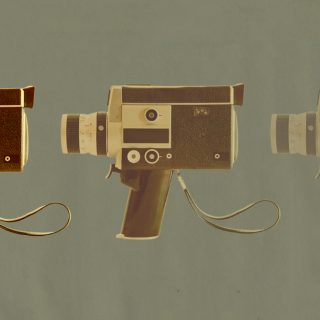“I hope films like Quo Vadis, Aida?, Dara from Jasenovac, and others like them contribute to developing a culture of remembrance in the Balkans, respect for victims, and regional reconciliation,” stated Jelena Trivan, chairperson at the time of the Serbian Film Center’s Board, three years ago when news broke that Quo Vadis, Aida? was shortlisted for the Academy Award for Best International Feature Film.
Although Bosnia and Herzegovina’s candidate did not win the Oscar, it received the European equivalent of this award, being recognized as the best film by the European Film Academy. As the Bosnian film industry has continued to pursue a path established by its first Oscar win (and the first Oscar in the former Yugoslavia, apart from Dušan Vukotić’s animated film Ersatz); Serbia has not managed to secure a nomination for this award for over a decade and a half.
Although winning or losing awards is not of primary concern in this discussion — the “Contribution of Film to Processes of Dealing with the Past” in the above-mentioned example becomes important, especially because the statement came from a politically appointed official overseeing a major state film institution which highlights a form of “competition” that has transferred from politics to culture. This competition involves deciding who suffered more in the wars that took place in Yugoslavia, from WWII to recent times. This also raises questions of who the perpetrators are and whether, and how, they are represented, even in film. Confronting the past means first and foremost, perhaps exclusively, confronting one’s own wrongdoings.
In this context, the focus here will be on three films produced after the fall of Yugoslavia in three newly formed countries. Films produced in Yugoslavia about WWII (e.g., Lordan Zafranović’s works) won’t be discussed, as they address the theme of evil in a universal manner and clearly identify the perpetrators. In contrast, films from countries born out of Yugoslavia’s dissolution often use themes of evil and crime to build ethnic identities of each of these countries. One reason for the slow and partial progress in dealing with the past is that behind national identities are individuals — people who committed crimes (allegedly) in the name of specific nations.
Aside from Quo Vadis, Aida?, which can’t be used to illustrate the idea that, in dealing with past, the authors must or should deal with crimes and criminals of their own societies, other examples include Serbia’s A Good Wife and Croatia’s The Diary of Diana B. Though formally different, all three films feature female protagonists, were directed by women, and are based on either older or more recent historical events. A Good Wife, the directorial debut of actress Mirjana Karanović, tells the story of a woman living a happy life with her husband, a former participant in the Yugoslav Wars. The family’s bliss remains undisturbed by his past; only their rebellious daughter, an artist whose work reveals her social engagement, challenges this past. But a VHS tape showing a brutal execution of civilian war prisoners (an evident reference to the “Scorpions” crimes in Bosnia) is discovered in the home, coinciding with the protagonist’s cancer diagnosis. Her illness becomes a pathway to confronting her personal, familial, and national past, including Serbia’s involvement in war crimes during the 1990s. This confrontation ultimately leads to her healing, symbolizing the potential healing of Serbian society.
Mirjana Karanović also stars in The Diary of Diana B, directed by Dana Budisavljević, which recounts the story of a humanitarian who saved many Serbian children from ustasha concentration camps. The film weaves black-and-white, thriller-like dramatizations of Diana’s experiences, a woman who realizes with horror what is actually going on in the Independent State of Croatia and does all she can to save what can be saved; alongside documentary testimonies from surviving children, now elderly, and harrowing footage of children in the camps. The lead role is played impeccably by Croatian actress Alma Prica. This film, supported by documentation and a search for truth from a neutral standpoint, offers a powerful, sensitive take on a difficult subject, challenging modern Croatian society. Although somewhat outside what would be considered the cinematic mainstream, it won the top domestic award, the Golden Arena in Pula. The author herself gave interviews in which she stated that it was good for young people in Croatia to know what happened in the Independent State of Croatia, the film has since been included in Croatian school curriculum.
Before Aida, Bosnian director Jasmila Žbanić created Grbavica, a film about a woman raped during the war who subsequently gives birth to a daughter. Mirjana Karanović played the lead in this film as well. The film won the Golden Bear in Berlin in 2006 and was screened at FEST in Belgrade as part of the main program in the Sava Center theater. Žbanić stood on stage after the screening and received a large applause and some boos. In contrast, Quo Vadis, Aida?, about the Srebrenica genocide, in a vastly different socio-political climate fifteen years later, has not been shown at any major film festival in Serbia and is unlikely to air on Serbian state television. Meanwhile, Dara from Jasenovac, a film about the suffering of Serbs in an ustasha camp, aired in prime time on RTS, circumventing usual protocols for Serbian Film Center-funded films, which require theatrical release first. This rush suggests an attempt to prioritize Serbian victimhood over others, especially Bosniak victims of Serbian forces in the 1990s. However, Serbian actors defended the nation’s dignity in this unseemly competition — not for the Oscars or artistic merit, but for depicting “our” suffering in a contest of whose suffering was worse (the worst type of banal esthetization of violence). Jasna Đuričić portrayed the lead in Quo Vadis, Aida?, and her husband, Boris Isaković, masterfully depicted the character of Ratko Mladić. The fact that a war criminal who committed war crimes against Bosniaks, in the name of Serbia, was portrayed by an actor from Serbia, something that might at first seem irrelevant for this topic and its interpretation, could be of crucial significance for Serbian viewers. Such cinematic-biographic intersections with real-life have a powerful effect on audiences and could aid in dealing with the trauma of Srebrenica, around which there is still a lack of consensus in Serbia and most citizens don’t even know exactly what happened. Or maybe everyone knows? Either way, the possibility of including this film in Serbia’s school curriculum, the way The Diary of Diana Budisavljević was included in Croatia, would likely spark widespread nationalist outrage.
Isaković and Đuričić also appear in A Good Wife, with Isaković as a war criminal and Đuričić as the wife of another paramilitary member, who is the weakest link in keeping a terrible secret from the war and as such is a target for threats and harassment, and later murder.
Another example of dealing with the past is the Croatian thriller Witnesses, directed by Vinko Brešan, about Croatian soldiers committing crimes against Serbian civilians during the 1990s, investigated by a brave journalist portrayed by Alma Prica. And in this film, Mirjana Karanović plays the mother of Croatian soldiers who is willing to cover up their crime at any (horrible) cost. We should also remember the Serbian director Ognjen Glavonić’s film The Load, which addresses Serbian crimes against Albanians in Kosovo. The lead role in this film is played by Croatian actor Leon Lučev, who was also part of the cast in several other films mentioned in this text. So now we can speak of a group of outstanding Yugoslav filmmakers and actors, whose acting skill and courage have brought all these subjects to light.
Even if some of these films weren’t widely seen, didn’t get the chance to be aired on national frequencies, or were censored and sidelined in other ways, they were made and continue to exist. Those of us who feel the need to ask questions and seek answers can do so, inspired by such cinema. In this way, at least individuals, if not society as a whole, may attempt to find a path to truth, and thereby to justice. Otherwise, the metastases (which is also the title of a contemporary Croatian film) that are increasingly spreading will consume the last remnants of our disease-ridden societies, devoid of conscience.
Ivana Matijević (Belgrade, 1973) is the culture editor at the print edition of the daily newspaper Danas. She graduated in Serbian literature and language with general literature at the Faculty of Philology, University of Belgrade, where she also defended her master’s thesis. She completed the Study of Religion program at the Alternative Academic Educational Network. She has collaborated with and written for the Serbian edition of Elle magazine, the magazine of the Literary Municipality of Vršac – Kovine, the theater newspaper Ludus, Forum ZFD, and others. She edits the Book supplement in the weekend edition of Danas, as well as numerous supplements and sections dedicated to cultural and artistic events.



